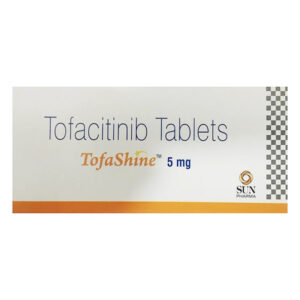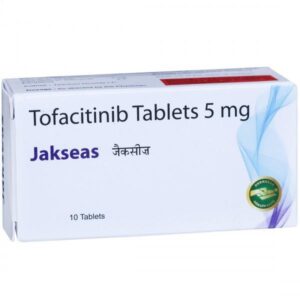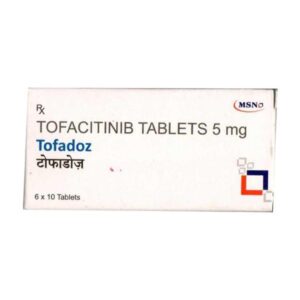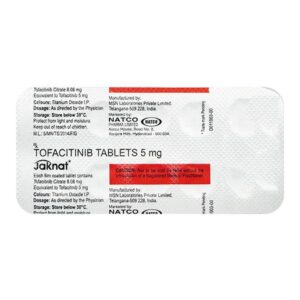TOFACITINIB
TOFACITINIB: Tofacitinib is a medication used to treat various inflammatory conditions, primarily rheumatoid arthritis. It belongs to a class of drugs known as Janus kinase (JAK) inhibitors.
The mechanism of action of tofacitinib involves inhibiting the activity of JAK enzymes, specifically JAK1 and JAK3. These enzymes are involved in the signaling pathways of numerous cytokines, which play a role in the immune system and inflammation. By inhibiting JAK enzymes, tofacitinib helps to reduce inflammation and alleviate the symptoms associated with inflammatory conditions.
The approved dose of tofacitinib for rheumatoid arthritis is usually 5 mg taken twice daily, although the specific dosage may vary based on individual patient characteristics and the severity of the condition. The medication is available in tablet form for oral administration.
As with any medication, tofacitinib can cause side effects. The most common side effects include upper respiratory tract infections, headache, diarrhea, and nasopharyngitis. Other potential side effects may include hypertension, changes in blood cell counts, liver enzyme abnormalities, gastrointestinal perforations, and increased risk of infections. It is important to consult with a healthcare professional to discuss the potential risks and benefits before starting tofacitinib therapy.
Furthermore, tofacitinib may also increase the risk of other adverse events such as venous thromboembolism, elevated cholesterol levels, and malignancies. Close monitoring and regular blood tests are typically recommended during treatment with tofacitinib to ensure safety and effectiveness.
It is important to note that this is just a general overview of the drug tofacitinib, and individualized guidance should be provided by a healthcare professional based on the specific condition and needs of each patient.




